REPOA’s Annual Report 2022
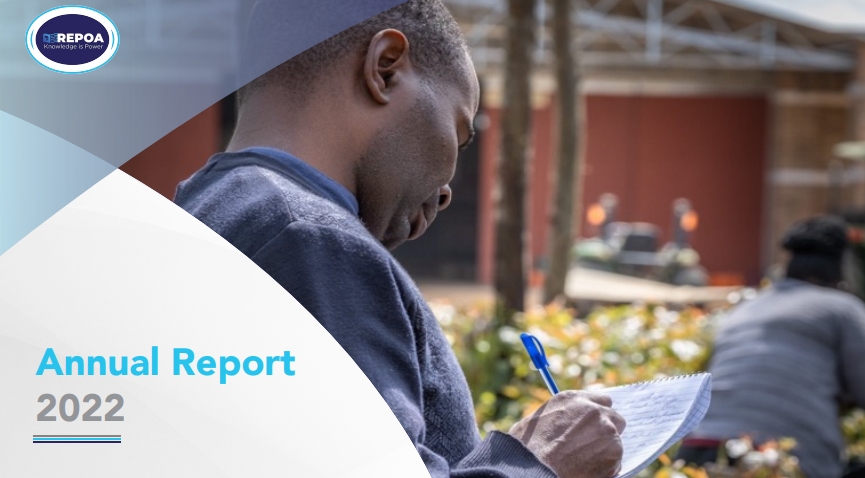
Dear our esteemed stakeholders, we are thrilled to present to you our annual report for 2022. The year 2022 marked the third year of implementation of our fifth strategic plan 2020-2024, seeking to inform and promote development policy agenda for further and accelerated socio-economic transformation and inclusive development. To access/ read the full Annual Report, […]
Workshop Report: 26th Annual Research Workshop – 2022 “Adapting trade to climate change for competitive green growth”
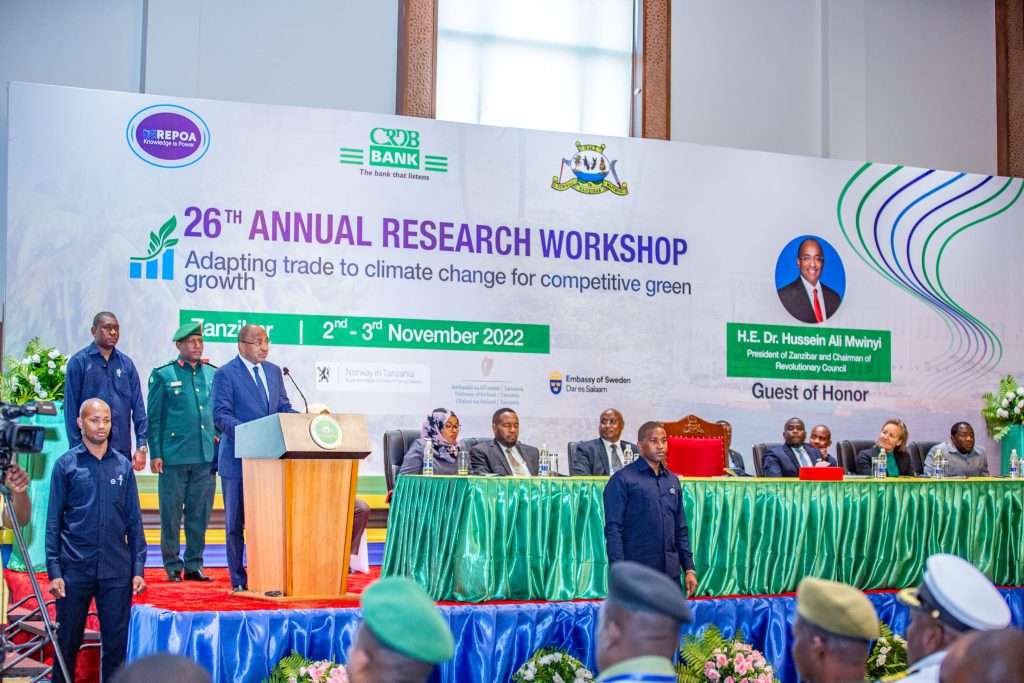
REPOA’s Annual Research Workshop continues to be the longest running and largest research workshop held in Tanzania by a Tanzanian organization, where researchers, research users, and development stakeholders meet to discuss research findings, their associated implications for development policy in Tanzania and propose areas of further strategic research. The 26th instalment of the workshop provided […]
Institutional arrangements for trade in agriculture value chains in Tanzania
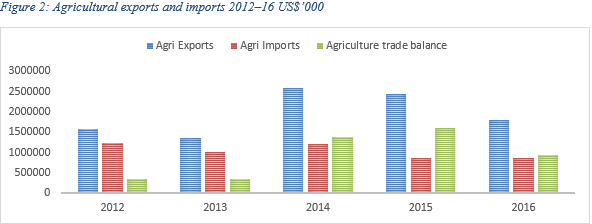
The report identifies and proposes responses to the bottlenecks to improving competitiveness and diversification in selected agricultural export-oriented sectors along Tanzania’s main export corridors. The report is structured as follows. Chapter 1 provides and introduction and background to the project – and the methodology used in undertaking the study. Chapter 2 provides a detailed account […]
Evaluation of the current status of hides and skins value chain in Tanzania leather sector
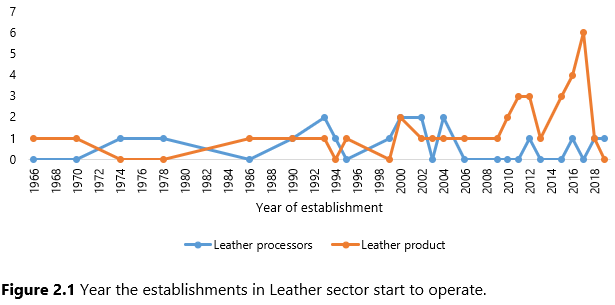
The study involved a brief evaluation of the existing leather processing and leather products-making industries’ current status. The work was divided into four phases: desk review to relevant literature; fieldwork in seven (7) regions of Tanzania, which took place from 27th October to 9th November 2020; focus group discussion, held on 17th November 2020; and […]
Enhancing Tanzania’s Competitiveness in the Logistics Value Chain
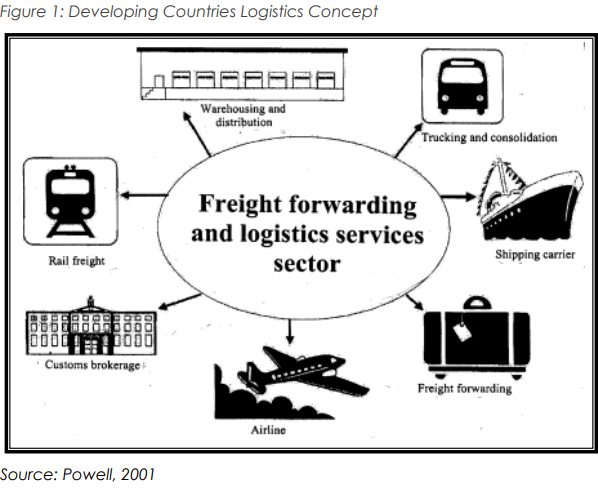
The freight logistics sector of Tanzania faces capacity-related challenges, which undermine its efficiency and lead to poor services, delays, compliance challenges, and low competitiveness, among others. The negative impact is felt nationally and in countries across the region that use the Tanzania transport logistics corridors. While benchmark figures exist on the regulatory aspects of the […]
Enhancing Tanzania’s competitiveness and export diversification in horticulture
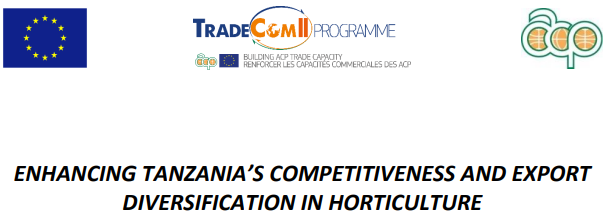
This report assesses ways of improving the competitiveness and diversification of the horticulture value chain in Tanzania by mainly focusing on the Northern Export Corridor.Using a value chain approach, a detailed review of the performance and competitiveness potential of the selected export-oriented agricultural subsectors was undertaken. A case study approach was adopted to provide fresh […]
Enhancing Tanzania’s competitiveness and export diversification in seaweed
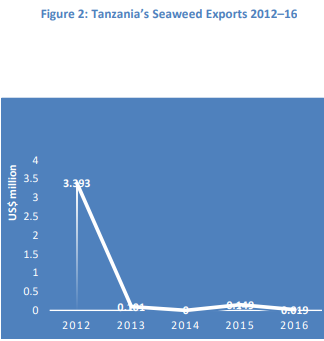
Using a case study and value chain analysis approach, this report examines agricultural competitiveness and export diversification in context of the seaweed sub sector, adopting Zanzibar as a case study area.Value chain analyses undertaken by the programme identified various success factors and initiatives that could be replicated in order to enhance competitiveness across the different […]
Business Climate Survey of Nordic Countries, 2022-23
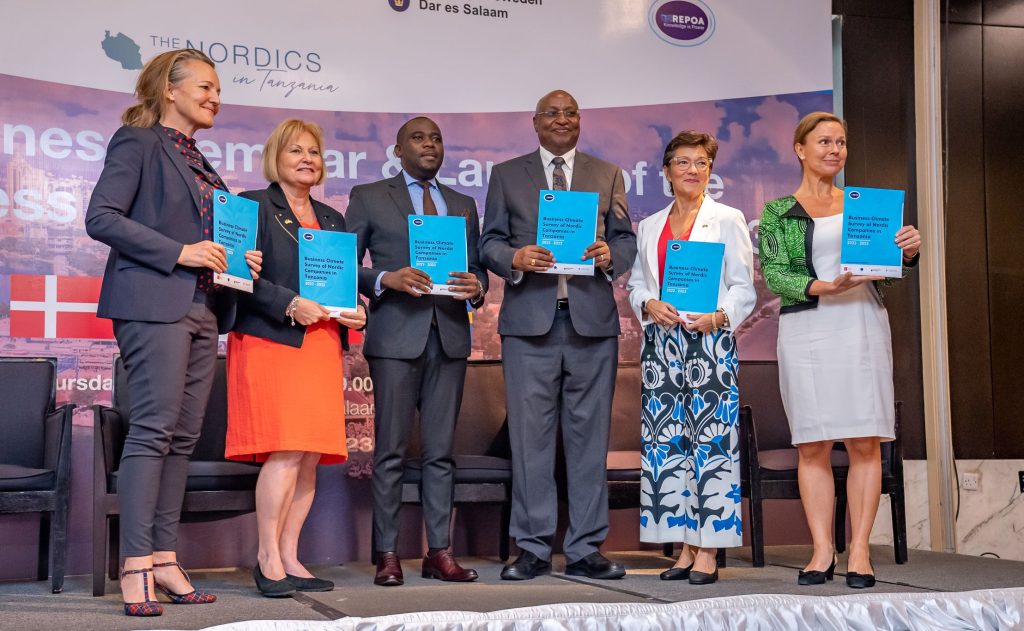
The 2022-23 Business Climate Survey for Nordic Companies in Tanzania is a joint initiative of the Embassies of Denmark, Finland, Norway, Sweden and REPOA. The survey is based on a mixed methods assessment of firms drawn from a non-probability sample of 99 firms operating in Tanzania mainland and Zanzibar. The survey was carried out between […]
Business Climate Survey of Nordic Companies in Tanzania, 2022-23

The Business Climate Survey for Nordic Companies in Tanzania is a joint initiative by the Embassies of Denmark, Finland, Norway, Sweden, and REPOA. Business Climate Surveys are published regularly in several markets across the world. This is a follow-up survey from that conducted in 2019 aiming to further our understanding of the performance of Nordic […]
The EU-EAC Economic Partnership Agreement (EPA) – Economic and Development Cooperation, and Targeted Benefits
This is the fifth of a five-part series of policy briefs presenting findings of a research study on the “Implications of EU-EAC EPA on Tanzania”. The study is part of the broader research and capacity building project ‘Targeted support to strengthen capacity of policy makers, exporters, and trade associations to assess and review trade and […]
The EU-EAC Economic Partnership Agreement (EPA) FISHERIES—Inland Fisheries, Coastal and Aquaculture Development
This is the fourth of a five-part series of policy briefs presenting findings of a research study on the “Implications of EU-EAC EPA on Tanzania”. The study is part of the broader research and capacity building project ‘Targeted support to strengthen capacity of policy makers, exporters, and trade associations to assess and review trade and […]
The EU-EAC Economic Partnership Agreement (EPA) AGRICULTURE—All crops, livestock and productive insects
This is the third of a five-part series of policy briefs presenting findings of a research study on the “Implications of EU-EAC EPA on Tanzania”. The study is part of the broader research and capacity building project ‘Targeted support to strengthen capacity of policy makers, exporters, and trade associations to assess and review trade and […]
REPOA’s Annual Report 2021
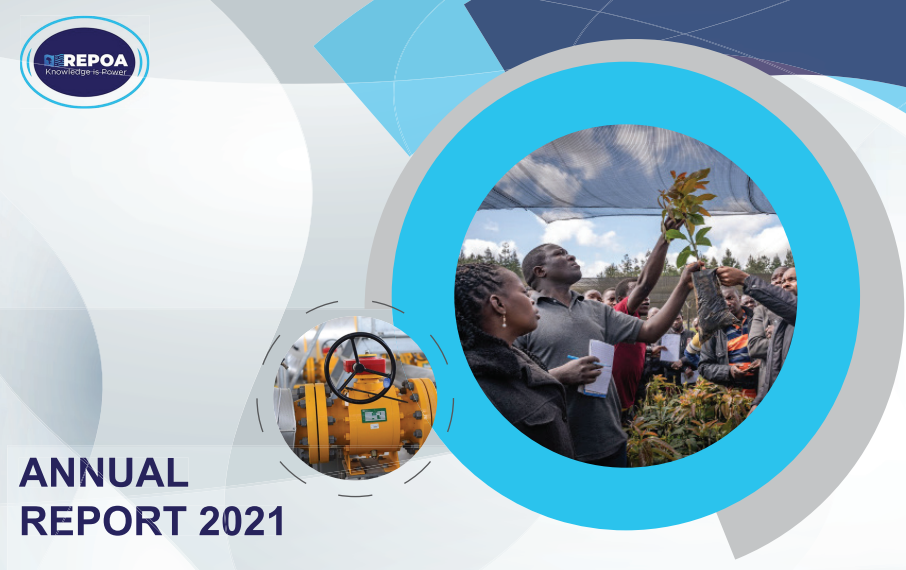
We are thrilled to present to our esteemed stakeholders our Annual Report for 2021. The year 2021 marked the second year of the implementation of our fifth strategic plan 2020–2024, seeking to inform and promote development policy agenda for further and accelerated socio-economic transformation and inclusive development.
Transaction Costs in Tanzania’s Rice Trade within the EAC and with the EU
This is the second of a three-part series of policy briefs presenting findings of the main research report “Institutional and Operational Bottlenecks in Rice Value Chains and Export in Tanzania: The Case of Mbeya Rice Producers and Traders.” Through the EU-ACP TradeCom II Programme, the study is part of the “Targeted support to strengthen capacity […]
Post pandemic Outlook on Tanzanian Rice Trade: Opportunities and Pitfalls
This is the first of a three-part series of policy briefs presenting findings of the main research report “Institutional and Operational Bottlenecks in Rice Value Chains and Export in Tanzania: The Case of Mbeya Rice Producers and Traders.” Through the EU-ACP TradeCom II Programme, the study is part of the “Targeted support to strengthen capacity of policy makers, exporters, and trade associations to assess and review trade and related economic policies to promote trade competitiveness and diversification for widening trading opportunities with the EU’’ – project implemented by REPOA and ISS-Erasmus.
The EU-EAC Economic Partnership Agreement (EPA)—The EU Trade and Investment with Tanzania
This is the second of a five-part series of policy briefs presenting findings of a research study the “Implications of EU-EAC Economic Partnership Agreement (EPA) on Tanzania.” The study is part of a broader research and capacity building project “Targeted support to strengthen capacity of policy makers, exporters, and trade associations to assess and review trade and related economic policies to promote trade competitiveness and diversification for widening trading opportunities with the EU’’ implemented by REPOA and ISS-Erasmus – funded by the European Union (EU) through the EU-ACP TradeCom II Programme. Its contents are the sole responsibility of REPOA and do not necessarily reflect the views of the European Union, the EU-ACP TradeCom II Programme or ISS-Erasmus.